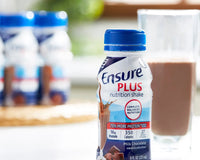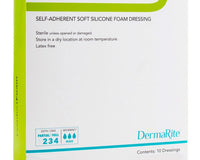Struggling with constipation can be a frustrating and uncomfortable experience, but understanding the basics of bowel regimens is the first step toward relief. A bowel regimen refers to a consistent routine designed to promote regular bowel movements. It often includes a combination of dietary adjustments, regular exercise, and, if necessary, over-the-counter or prescription medications.
At the core of managing constipation is the intake of dietary fiber, which helps to bulk up and soften stools, making them easier to pass. Drinking plenty of water is also crucial, as it aids the fiber's function and ensures smooth transit through the intestines. Regular physical activity stimulates the muscles in the digestive system, further encouraging bowel movements.
For those who need additional assistance, stool softeners, laxatives, or enemas may be incorporated into the regimen. However, these should be used cautiously and under medical advice, as over-reliance on them can lead to dependency and further complications.
Remember, the best bowel regimen for constipation is one that is tailored to an individual's specific needs and health status. It may take some trial and error to find the right balance, but with patience and the right approach, constipation can be effectively managed. If you're in need of quality health products to support your bowel health, Order online here for convenient shopping and doorstep delivery! At Cart Health, we're here to support you every step of the way.
Natural Remedies and Dietary Adjustments for Constipation
Natural remedies and dietary adjustments play a pivotal role in establishing an effective bowel regimen. A diet rich in fibrous foods such as fruits, vegetables, whole grains, and legumes is fundamental for preventing and treating constipation. These fibers act as natural laxatives, improving stool bulk and facilitating easier bowel movements.
Incorporating probiotics into one's diet is another natural approach to enhancing gut health. Found in fermented foods like yogurt, kefir, and sauerkraut, probiotics help to balance the gut microbiome, which can improve bowel regularity.
Herbal remedies such as senna, psyllium husk, and flaxseed have been used for centuries to combat constipation. These herbs increase stool volume and promote bowel motility. However, it's important to consult with a healthcare professional before starting any herbal supplement, as they may interact with other medications or have side effects.
Staying well-hydrated is essential; water is often underestimated in its ability to combat constipation. It works synergistically with fiber to soften stools and promote smooth passage through the colon. Warm liquids, especially in the morning, can also stimulate bowel movements.
Lastly, mindful eating practices, such as chewing food slowly and thoroughly, can aid digestion and prevent the onset of constipation. By making these natural remedies and dietary adjustments, individuals can significantly improve their bowel health and comfort.
Over-the-Counter Solutions: Laxatives and Stool Softeners

Over-the-counter (OTC) solutions such as laxatives and stool softeners are widely used to provide quick relief from constipation. These medications work in different ways to facilitate bowel movements and are selected based on the individual's specific needs.
Laxatives come in various forms, including bulking agents, osmotics, stimulants, and stool softeners. Bulking agents, like methylcellulose and psyllium, increase stool bulk in a manner similar to dietary fiber. Osmotic laxatives, such as polyethylene glycol and lactulose, draw water into the intestines, softening the stool and making it easier to pass.
Stimulant laxatives, including senna and bisacodyl, trigger contractions in the intestines to move stool through more quickly. While effective, they should be used cautiously as they can sometimes lead to dependency if used regularly over a long period.
Stool softeners, such as docusate sodium, make the stool softer and easier to pass by increasing its water content. They are often recommended for those who should avoid straining during bowel movements, such as individuals recovering from surgery or women who have recently given birth.
It is crucial to use OTC laxatives and stool softeners responsibly. Overuse or misuse can lead to side effects, such as dehydration, electrolyte imbalances, and in some cases, worsened constipation. Reading labels and following the recommended dosages is important, and consulting a healthcare professional is advisable when in doubt or if constipation persists.
Prescription Medications for Chronic Constipation Management

When over-the-counter options are not sufficient, prescription medications can play a pivotal role in managing chronic constipation. These drugs are designed to address various underlying causes of constipation and are often used when other treatments have failed to provide relief.
Lubiprostone is a type of medication that works by increasing fluid secretion in the intestines, which softens stool and promotes bowel movements. Another medication, linaclotide, functions by increasing chloride and water in the intestines and can help relieve abdominal pain associated with constipation.
For those with opioid-induced constipation, medications like naloxegol and methylnaltrexone can be effective. These drugs work by blocking the effects of opioids on the bowel without affecting their pain-relieving properties.
It's important to note that prescription medications for constipation are not suitable for everyone and can have side effects, such as diarrhea, bloating, and gas. Additionally, some may interact with other medications, which underscores the necessity for a personalized approach to treatment. A healthcare provider can assess an individual's specific condition, consider potential drug interactions, and recommend the most appropriate prescription medication.
Adherence to the prescribed treatment regimen is essential for managing chronic constipation effectively. Patients should also be aware that lifestyle modifications, including diet and exercise, often need to accompany medication to achieve the best outcomes. Regular follow-ups with a healthcare professional ensure that the chosen treatment remains effective and safe over time.
The Role of Exercise and Lifestyle in Bowel Health

Exercise and lifestyle choices have a profound impact on bowel health, often working hand-in-hand with dietary changes and medical treatments to create the best bowel regimen for constipation. Physical activity, particularly aerobic exercise, stimulates the natural contraction of intestinal muscles, helping to move stools through the colon more efficiently. This can reduce the time it takes for waste to pass through the gut, alleviating constipation.
Regular exercise such as walking, swimming, or cycling, can significantly improve digestive health. Moreover, strength training exercises should not be overlooked, as a strong core and abdominal muscles can also aid in effective bowel movements.
Lifestyle modifications play an equally crucial role in managing constipation. Establishing a routine, including regular meal times and dedicated times for bathroom visits, can help train the body's digestive system to be more regular. Stress management techniques such as yoga, meditation, or deep-breathing exercises can also relieve the symptoms of constipation, as stress can negatively affect bowel function.
Hydration is another key factor; drinking plenty of water throughout the day helps to soften stool, making it easier to pass. In contrast, excessive consumption of alcohol and caffeine can lead to dehydration and subsequently exacerbate constipation issues.
By integrating consistent exercise and mindful lifestyle choices, individuals can support their digestive systems and contribute to overall bowel health. While these changes can be beneficial on their own, they are often most effective when combined with other elements of a comprehensive bowel regimen tailored to an individual’s specific needs.
When to Consult a Healthcare Professional About Constipation

While occasional constipation is common, there are certain situations where it is crucial to seek medical advice. If constipation is new, persistent, or worsening, or if it is accompanied by concerning symptoms such as rectal bleeding, abdominal pain, or drastic changes in bowel habits, consulting a healthcare professional is essential. These symptoms could indicate an underlying health condition requiring prompt medical attention.
Individuals who find that their constipation does not respond to over-the-counter remedies or lifestyle changes should also speak with a healthcare provider. They may require a more specialized best bowel regimen for constipation, which could include prescription medications, specific dietary plans, or even physical therapy for pelvic floor dysfunction.
For those experiencing constipation as a side effect of medication, a healthcare professional can advise on alternative treatments or adjustments to current prescriptions. Elderly individuals, pregnant women, and those with chronic health conditions should also consult their doctors before starting any new regimen for constipation to ensure it is safe and appropriate for their health status.
At Cart Health, we understand that managing your health can be complex and that sometimes you need a helping hand. If you're looking for specific medical supplies to support your bowel regimen, we're here to help. Order online here for convenient shopping and doorstep delivery! Our team is dedicated to providing the products and support you need to enhance your quality of life.









